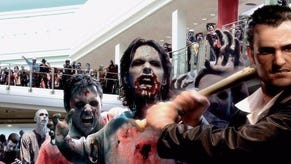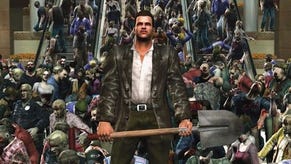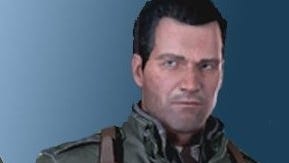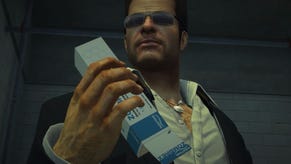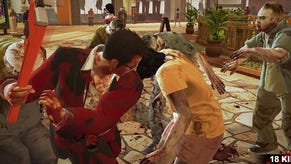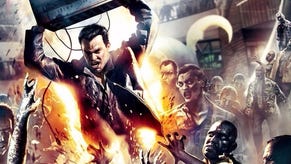Dead Rising
Import review: The dead walk (and wear horsey masks).
A message on the front of the box, repeated on the way into the game, warns anybody in any doubt that Dead Rising is neither the work of nor sanctioned by the great George A. Romero, and has nothing to do with his seminal Dawn of the Dead.
Except, of course, it has everything to do with it. But it's not just the malls, the sniping, the pillaging of supplies and shuttering of doors, the painful "turning" of familiars or the insurgence of pesky lunatics at various intervals. If there's one parallel Capcom must be particularly proud of, it's the consistency of humour and that all important survivalist instinct. Where, perversely, Dawn of the Dead was a horror film people actually wanted to be in, Dead Rising is a horror game that renders the same compulsion for the same reasons.
Not only that, but you can face the apocalypse dressed as a horse.
This is another of Dead Rising's great strengths. Zombies have been gaming fare for years, but for the most part, if they've been comical at all, it's been incidental. Their heads have been blown off, or they've accidentally thrown lumps of flesh at each other instead of you, but for the most part they're serious business. Dispensing them in Resident Evil was - to use a pun they wouldn't allow - a grave matter. Not so in Dead Rising. Here they roam around in their thousands. Literally thousands. As much as the mall, which lets you play dress-up, where food and drink constitute health-packs and "everything is a weapon" (thanks Mr Box), the zombies are your environment. Where once we had fun leaping from pillar to post or gawping at waterfalls, here we get to admire a sea of bloody heads, and then wade through it swinging lead pipes and golf clubs, straddling a shopping trolley or tossing a bowling ball.

One of the game's central mechanics, and something that directly contributes to your levelling up and adds to any given gameplay situation, is taking photographs - the ones that score biggest are the most brutal and amusing, but the ones you'll keep are the snaps of a shower-head jammed in a zombie skull spraying gore. For many things, you earn Prestige Points, which are Dead Rising's XP, and you can inflate the figures by completing missions, composing elaborate photographs or capturing pivotal or dangerous figures on film, and by bringing your camera instinctively to bear on scenes or romance and high drama - for example, at the seconds-only prompt of a "PP" icon above a pair of reunited lovers. It's certainly a good snapper-sim. Also: you earn extra points for cleavage.
In fact, in terms of its sense of humour, and its determinedly frivolous approach to serious events, perhaps the box should also caution that Dead Rising was not licensed, created or authorised by the people who made Grand Theft Auto.
It's not an unfair comparison in many respects. Theirs are similar avatars, in terms of running, jumping, killing (although DR's manual-target for projectile weapons might be considered a step down were it not for the decent analogue aiming), and the free-roaming ideal, and execution of story and missions bear comparison. As you receive messages on your transceiver from the survivors holed up in the security room watching CCTV, you're able to choose from available missions to tackle and directed to them with an arrow. Some take the form of escort or rescue missions, involving clearing a path for hapless NPCs or, infinitely easier, giving them a piggyback, lending them a shoulder (clothesline!) or, a bit awkwardly, holding their hand. Quite a lot, preceded by GTA-style in-game cut-scenes (nice mask! etc.), are boss fights. Psychopaths dotted around the mall need dealing with, often at the barrel of a gun or the blade of a knife or the handle of a bucket - there's a crazed Vietnam vet, a mad supermarket owner with a trolley full of knives, a lunatic clown with a penchant for chainsaws and prancing, and plenty of others besides - and for the most part these battles are about keeping an eye on your enemy's patterns and seizing any opportunities to take advantage.
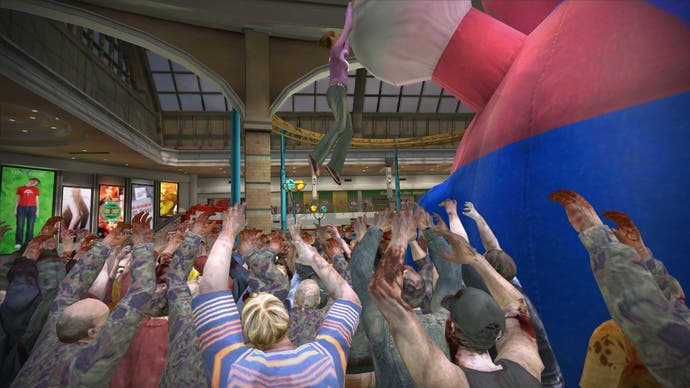
Other missions are story-critical, and contribute to the search for The Facts. Laid out as "cases", these missions unfold at certain times on the three-day clock, and if you fail them you have to reload your save or you are barred from uncovering the truth. Usually boss-style, these missions are book-ended by longer sections of exposition, and sometimes precipitate changes to the environment - a new plaza opening up, a doorway unlocking, access to maintenance tunnels, and so on.
Like GTA, you also need to stock up on things before you tackle missions. A lot of bosses require guns, or decent blades, not to mention an inventorised stock of high-energy health-packs (so, orange juice - fruit is disproportionately healthy, you know). But unlike GTA, you can't simply do things again and again if you come unstuck. If you die, you're usually given the option to load your save or save your status and quit to the titles. The latter is a good idea: die and quit, or finish the three days, and you can restart the game with your stats intact. Any abilities, health upgrades and costumes you've uncovered remain with you. The former option, however, points us toward one of the game's biggest flaws.
Well, one of the things most people are complaining about. You can only save the game in one slot. You either overwrite that whenever you enter a bathroom or security area hub for a saving nap, or you don't save. Simple as that. And obviously this causes problems. You can't, for example, go back and try other things. The game's on-the-clock set-up means that if you miss out on a mission because you were waylaid by another, or by slicing up the undead, then you've completely missed it. Do a few on the trot and die, or miss a story-starter, and you have to reload. As brilliantly communal an activity as Dead Rising feels, anybody hoping to show it off to some friends and let them have a go is either going to have to issue a strict no-saves mandate to avoid missing out, or simply accept the choices and mistakes they make.




